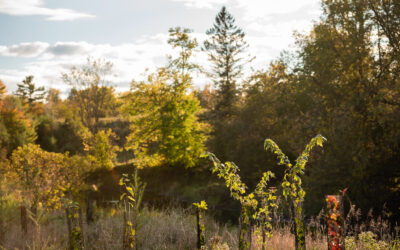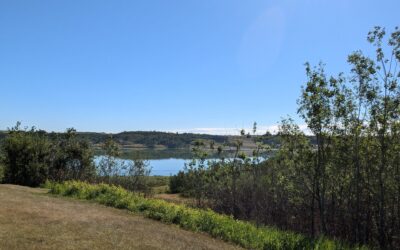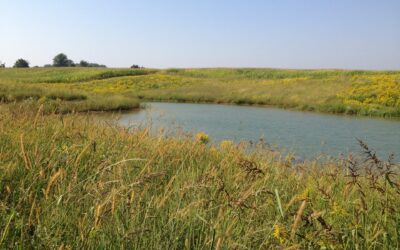Farmers have been on the frontlines of the climate crisis, facing drought conditions in the west and flooding in the east. But many have discovered that creating wetlands on working lands can build resilience to extreme weather events, while also producing several other benefits, like food and shelter for wildlife and cleaner creeks and streams. Here are a few of their stories.
Rob Stavne, Peace River, Alberta
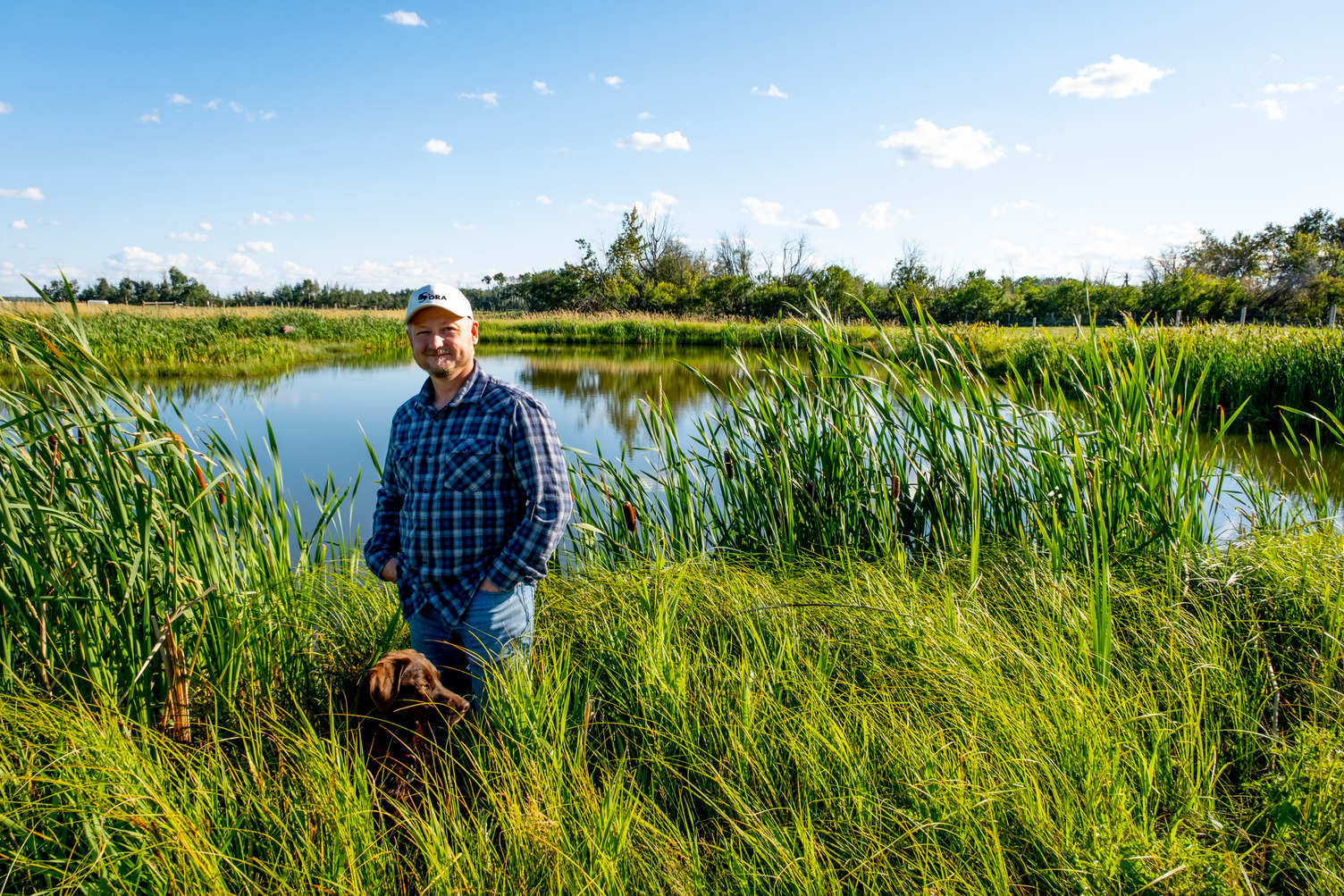
ALUS rancher, Rob Stavne, stands in front of his restored wetland.
Alberta has been locked in a multi-year drought, but several farmers with wetlands on their lands have reported seeing increased landscape resilience during these prolonged dry periods. ALUS participant, Rob Stavne, has been one of them. Rob enhanced and restored a wetland on his property and saw the effects of the project immediately. “It really shows what the potential of the landscape is to compensate in a drought year,” says Rob. “I can see how lush everything is and there’s an awful lot of ground moisture.” Breeding pairs of waterfowl and songbirds also arrived.
“There’s lots of landscape that should be in agricultural production…but there’s also parts of that landscape that are really difficult to farm,” says Rob. “It’s a lot easier to invoke a partnership with ALUS and talk about what the potential is for that area. How can we spin this bad area into something that’s going to be productive for the landscape and productive for yourself?”
The Crumps, Ilderton, Ontario
When Chris and Vivian Crump purchased their 600-acre farm, rainwater would stream through and around the barns. It would pick up topsoil and manure before flowing into the Sydenham River. Standing water on the fields would make it difficult to farm and graze cattle. Farm operations and the health of the river were at risk without a permanent solution. Working with their local ALUS community, ALUS Middlesex, the Crump’s were able to fund a $54,000 water management project in partnership with the Ontario Soil and Crop Association and the St. Clair Region Conservation Authority. They seeded a grassed waterway, planted a windbreak, and reconstructed the main water control pond. These projects help manage water on the farm, while also creating habitat for wildlife. “Listen to the birds man; they’re back,” says Chris. Read the Crump’s story.
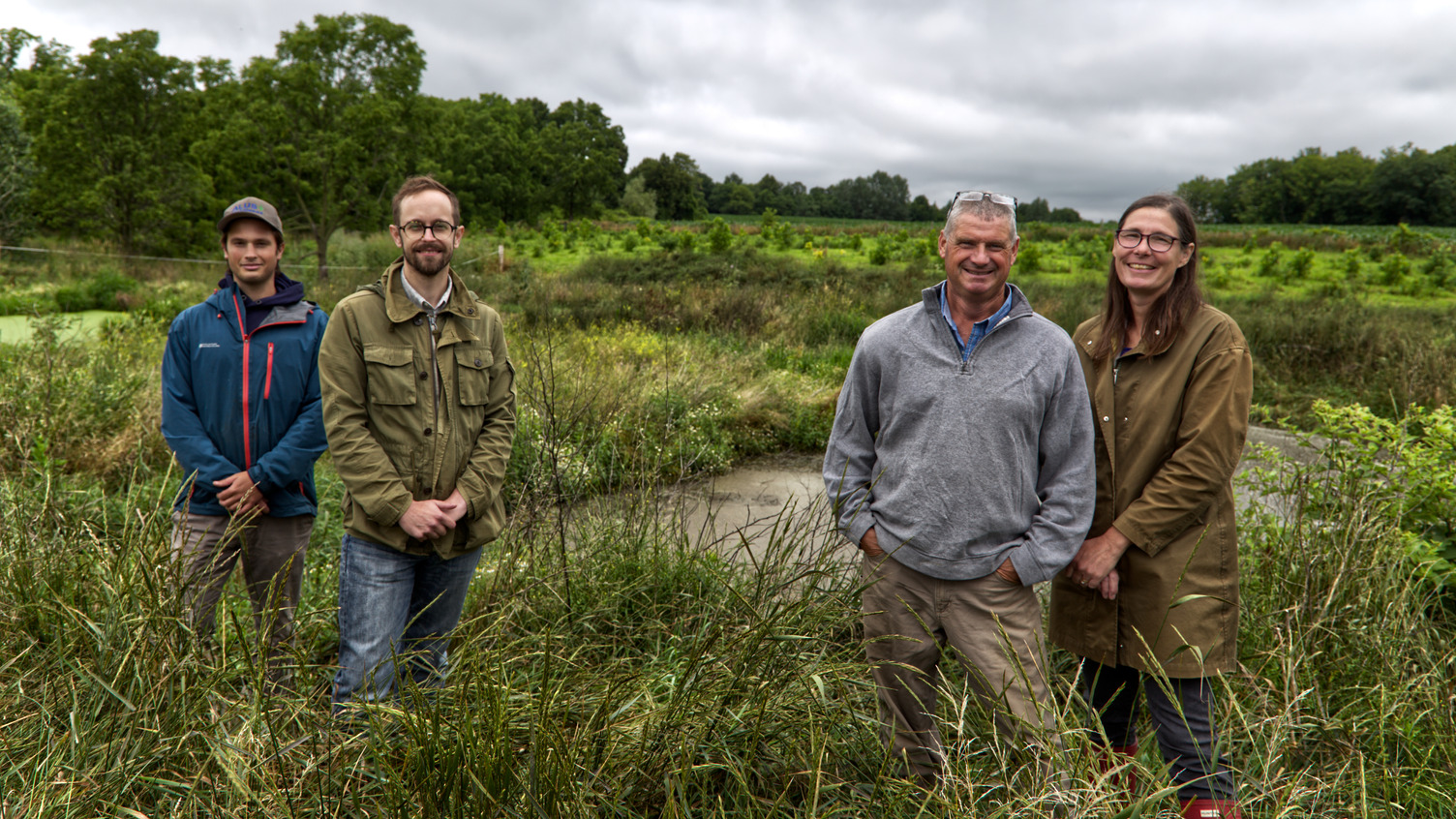
Left to right: Peter Moddle former ALUS Middlesex Coordinator), Todd Westcott, Communications Specialist and Community Liaison at ALUS, and ALUS participants Chris and Vivian Crump.
Marc Bercier, Ferme Agriber, Inc., St. Isidore, Ontario
Marc Bercier knows that the way he manages his farm can affect both upstream and downstream communities. It’s one of the reasons why he converted a parcel of his 2,800-acre farm into a wetland and a 600m riparian buffer along his property.
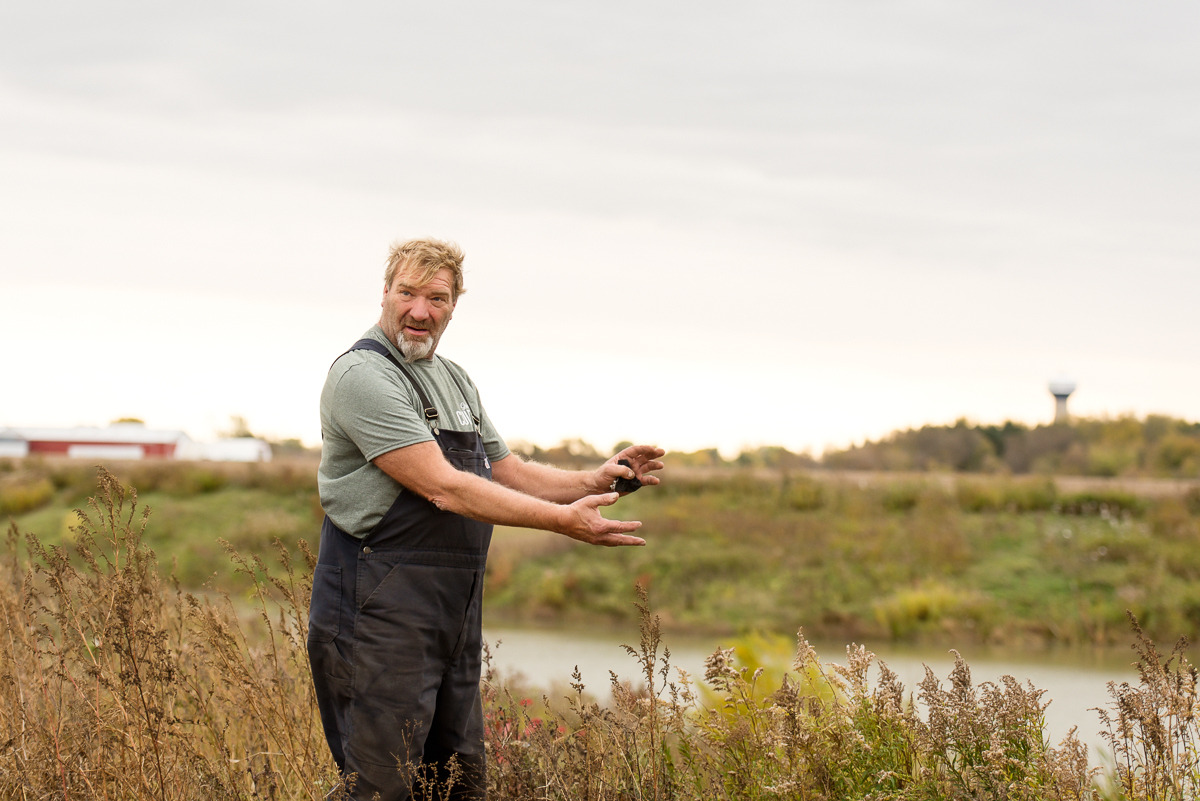
ALUS farmer, Marc Bercier, showcases his ALUS projects at the 2020 Dave Reid Award ceremony.
Marc grew up fishing in nearby Scotch River. But over the years, he noticed the health of the river deteriorate due to surrounding land use changes. The section of the Ottawa River that runs through St. Isidore has also been known to flood. Drainage from farm fields during heavy rain events contribute to sudden, increased waterflows, causing flooding and later drought in the summer. “We need to keep the water on the farmland,” says Marc. The wetland he built helps with that—slowing and capturing water during high rain events, letting it filter back into the earth, keeping soil and nutrients in the fields and out of the river. His projects also provide food and shelter for various wildlife, like herons, ducks and hawks.
“My family and I have seen how quick you can re-establish natural habitat on your farm,” says Marc. “It will create a win-win situation for the natural habitat and farming.”
Learn more about Marc’s approach to farming with nature.
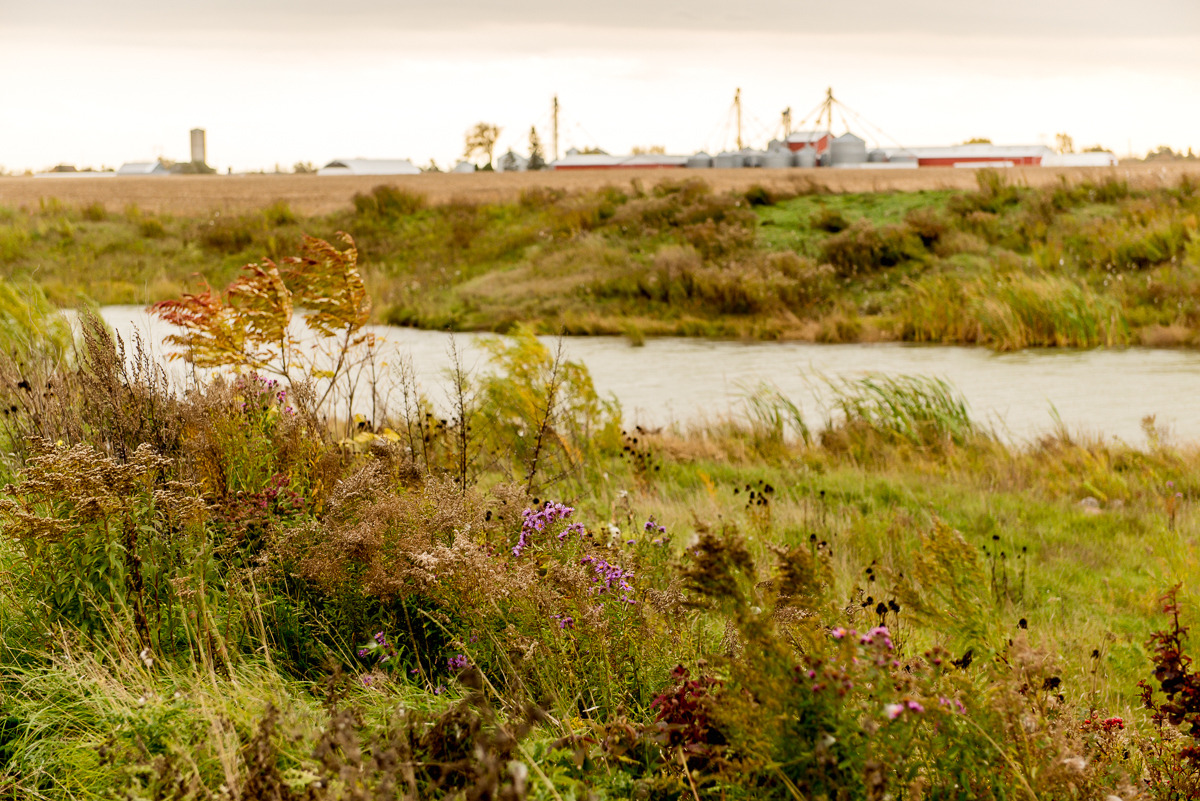
The wetland Marc Bercier built on his farm.
One acre at a time
Rob Stavne, the Crumps and Marc Bercier are part of a growing network of farm families across the country committed to creating, restoring and stewarding nature on their lands to build resilience on the farm and in their communities. Their stories reflect the efforts of more than 1,750 ALUS participants who are actively managing and maintaining over 52,000 acres of nature-based projects that reduce the risk of flooding and drought, prevent blowing snow and soil erosion, keep nutrient and sediment of our freshwater system, and create habitat for wildlife.
Learn more about wetlands on farmland
- Wetlands on Farmlands (ALUS)
- The Contribution of Wetlands Towards a Sustainable Agriculture in Canada (CAPI)
- Extent of Canada’s Wetlands (Government of Canada)

